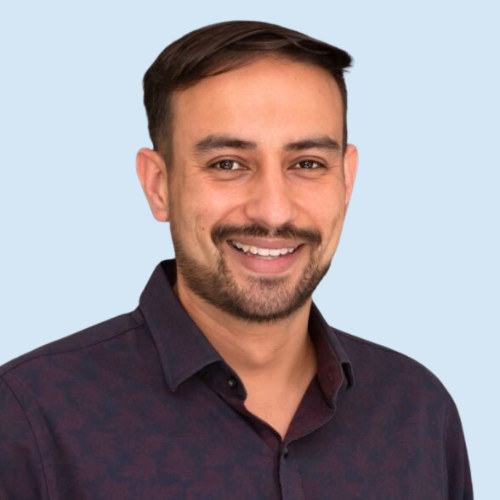If you're reading this - you know you need a flexible business bank account as you grow If you’re reading this, chances are you’re on the hunt for a flexible business bank account to meet your daily business banking needs. But after scouring websites and comparing options, you’re left asking: Which financial institution is the best fit for my business?
While traditional banks and digital banks offer plenty of business banking options, they often appear similar at first glance. It’s tempting to pick the first account—only to realize later that unexpected transaction fees or limited features are holding your business back.
After working with hundreds of business owners, we’ve put together this guide to help you identify the valuable business banking features your business needs, compare top business checking accounts, and avoid costly mistakes. Whether you run a sole proprietorship, a medium business, or a larger business, this guide will simplify the decision-making process.
Key Factors When Choosing a Business Bank Account
Before we start comparing - there are 3 main things to look out for when choosing a business bank account:
- Monthly Fees & Transaction Limits
- Loan Terms & Flexibility
- Support and Accessibility
Monthly Fees and Transaction Limits

Most business accounts have a monthly fee to them which cover a certain amount of transactions like Interac e-transfers, deposits, and bill payments.
Once you hit this transaction limit, every additional transaction can trigger overage fees (on top of the monthly fee). While this may not seem like a big deal for a few busy months - for a scaling business these fees add up.
You can have the monthly fees waived if you have a minimum daily balance. We'll talk about how much money you should have in the bank at all times in another post. For now, we'll tell you what the fees are without the minimum balance so you're aware.
Who should care:
- High volume businesses with multiple monthly transactions (e.g. eCommerce)
- Scaling businesses that have monthly growth targets
- Business with multiple suppliers that they pay directly from their banks
- Businesses with multiple monthly purchases
What to Watch For:
- Monthly fee amounts and whether they can be waived with a minimum balance.
- Number of included transactions and the fee per extra transaction.
Loan Terms and Flexibility

Access to flexible financing is great, especially when you need to scale or deal with unexpected expenses. Different banks have different terms for business loans, lines of credit, and other financing. Some accounts make loans easily accessible, while others come with stricter requirements, such as collateral in the form of a lien or mandatory guaranteed investment certificates (GICs).
Who should care:
- Capital intensive businesses that require equipment or locations to grow
What to Watch For:
- Collateral requirements, such as GICs or liens on assets.
- Flexibility with repayment schedules and interest rates.
- Options for lines of credit vs. traditional loans, depending on your cash flow needs.
Support and Accessibility
.png?width=2240&height=1260&name=Blog%20Banner%20Software%20(2).png)
Responsive, knowledgeable support can be a lifesaver, especially when you need quick help with digital banking issues, payments, or troubleshooting account features. Many small businesses don’t have dedicated financial teams, so they rely on bank support to get answers fast. Some banks prioritize business customers with dedicated support lines or offer business advisors who can provide advice tailored to your specific account and operations.
Who should care:
- All business owners - especially with small businesses and limited accounting support
What to Watch For:
- Dedicated support lines for business account holders.
- Quick response times and knowledge in business-specific banking issues.
- Options for in-branch support if needed, particularly for cash-based businesses.
P.S. If support is important to you, we offer the unlimited kind - check out our plans here 😎
Best Business Bank Account Canada
|
Account |
Monthly Fees & Transaction Limits |
Loan Terms & Flexibility |
Support and Accessibility |
|
RBC Flex Choice |
Okay - Monthly Fee: $7 ; Variable Transaction Fees |
Good - Various options, flexible repayment |
Good - 24/7 online/mobile, specialists available |
|
RBC Digital Choice |
Good - Monthly Fee: $6, unlimited electronic transactions, 10 e-transfers included |
Good - Similar to Business Essentials |
Okay - Digital focus, branch access |
|
TD Every Day Business Plan B |
Okay - Monthly Fee: $39, 60 transactions & 50 deposits included. |
Good - Various options, flexible terms |
Good - Online/mobile, extensive network |
|
TD Unlimited Business |
Okay - Monthly Fee: $125, unlimited transactions |
Best - Comprehensive options, flexible terms |
Best - 24/7 support, specialists, wide network |
|
CIBC Unlimited Business |
Best - Monthly Fee: $65, unlimited transactions |
Good - Flexible terms with various loan options |
Good - Online/mobile banking; accessible support services |
|
CIBC Everyday Business Operating Account |
Good - Monthly Fee: $25, 30 transactions included |
Okay - Standard options |
Okay - Digital focus, limited support |
|
BMO Business Start |
Okay - Monthly Fee $6, 7 Transactions & 2 e-transfers included |
Okay - Startup-friendly options |
Okay - Basic online/mobile access |
|
BMO E-Business Plan |
Good - Monthly Fee: $0, unlimited online transactions (Great for businesses that only need online banking) |
Best - Comprehensive options, flexible |
Good - 24/7 online/mobile support |
Mesa’s Picks (By Type of Business)
For Small Business and Sole Proprietors
BMO’s Business Start Plan and TD’s Basic Business Plan are great for keeping monthly fees low and loans accessible. Both banks offer solid e-transfer features.
For Businesses with High Transaction Needs
CIBC’s Unlimited Business Account is a winner for high-volume businesses, giving you unlimited transactions for a flat fee.
For Businesses Needing Flexible Financing
BMO and TD stand out for their flexible loan options and manageable collateral requirements.
For QuickBooks Users
If you rely on QBO, consider CIBC, BMO, or RBC. Scotiabank is still working out issues with QBO integration.
Bank Account Checklist: Make an Informed Choice
Ask these questions before making a decision:
- What’s the monthly fee, and can it be waived?
- Is there a minimum balance requirement?
- What are the e-transfer, EFT, and bill payment limits?
- Does the account integrate with QBO or other software?
- What loan options are available, and do they require collateral?
- Is responsive customer support available when you need it?
Choosing the Bank Account That Works as Hard as You Do
The right bank account keeps your business running smoothly and supports your growth. Check each bank’s features, then compare against your needs. While you can always switch - the admin burden is a headache so you want to try and choose the right bank for you from the start.
Fun Fact: When our clients try to find the best business bank account for them - they can reach out to their dedicated support team for a specific answer. If that's the level of support you'd like - book an initial consult. First one's one us 🙂
.png)


.png)

